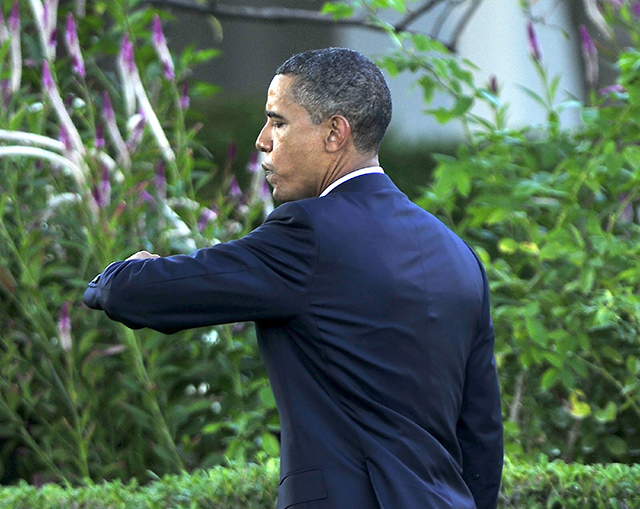Southeast Asia: In Obama’s Absence, China Takes Initiative
Ian Everhart /
Reactions to President Obama’s absence from this year’s Asia–Pacific Economic Cooperation (APEC) forum highlighted the stakes of American leadership in Southeast Asia and shined a spotlight on China’s rising challenge to U.S. influence in the region.
Amidst the ongoing government shutdown, President Obama abruptly canceled his highly anticipated trip to the APEC forum held in Indonesia. The annual meeting is an opportunity for the 21 members of APEC, which comprises every major Pacific Rim nation and the key powers in Southeast Asia, to convene and discuss important measures to increase economic freedom and openness between member states.
U.S. attendance provides a measure of reassurance and leadership to American allies and partners. President George W. Bush never missed an APEC meeting.
Chinese Communist leaders unveiled a series of speeches and initiatives to advance Chinese power in Southeast Asia. Taking center stage at the forum, Communist Party boss Xi Jinping stated that China would work together for “a harmonious Asia Pacific of enduring peace and common prosperity” while asserting China’s critical importance to Southeast Asia’s economies.
Also making the rounds was Premier Li Keqiang, who, at the Association of Southeast Asian Nations (ASEAN) meetings in Brunei (which President Obama also missed), proposed a Chinese-funded Asian infrastructure investment bank and called for an overhaul of the China–ASEAN free trade zone, vowing to invest more than $100 billion in ASEAN by 2020.
Southeast Asia is a crucial region for both China and the United States. As Heritage’s China Investment Tracker shows, ASEAN member states have received the largest combined share of Chinese investments and contracts, totaling more than $80 billion since 2005, a more than 80-fold increase over the year in which record-keeping began. Nearby Australia finalized more than $58 billion in transactions with China over the same period.
Alongside the many Chinese projects in Southeast Asia has been a deepening of ties between Chinese state-owned enterprises with local governments. As indicated in the Heritage tracker, top Chinese state-owned defense company Norinco alone was contracted for a $1.5 billion irrigation project in Laos, invested in two copper mining projects in Burma totaling $2.3 billion, and has invested billions more in Iran and Russia.
At the end of the day, President Obama’s absence at the APEC and ASEAN meetings will be forgiven. The region knows America and wants it there. Nevertheless, President Obama should know that in his absence, the Chinese are continuing to press their advantages.
Ian Everhart is formerly a member of the Young Leaders Program at The Heritage Foundation. For more information on interning at Heritage, please click here.

